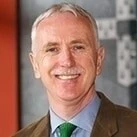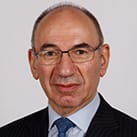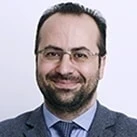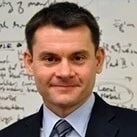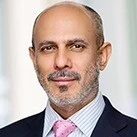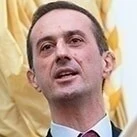Overview
The Finance group at Cambridge Judge Business School covers a broad spectrum of issues in finance. We define finance as more than a set of financial transactions – it is the glue that holds together corporations, capital markets and the real economy.
We pursue research on empirical and theoretical corporate finance, asset pricing, and financial accounting as well as the intersections of finance and economics. In doing so, we treat finance as both an art and a science.
Professor Raghavendra Rau talks about the Finance pathway
The pathway
To start on the Finance pathway you must take one of the following 9-month masters programmes:
Master of Research (MRes) (for students with a Cambridge MPhil in Economic Research)
Essential reading
Download detailed information about the 9-month + 4-year programme structure and content.
Research areas
Our faculty research is based around empirical and theoretical corporate finance, asset pricing, and financial accounting as well as the intersections of finance and economics. You will have the opportunity to conduct cutting-edge research on the multi-faceted linkages between investors, intermediaries and corporations. While the questions are academic in nature, we strive for solutions that can inform the practice of finance, and we incorporate this spirit into our teaching and other classroom interactions.
- Provides the methodical rigour to infer causal statements about the way the world works.
- Allows us to shed light on questions that we, and businesses in the real world, deemed to be interesting and important at this time.
- Leads to key new understandings, eg the importance of the role of financial intermediation for growth and welfare.
- Work on topics and papers related to the study of commercial banks, investment banks, universal banks, mutual funds, hedge funds and other providers of financial services.
- Market failures and inefficiencies as a result of what happens within firms, not just between financial institutions and those seeking their services.
- Analysis of how firms work – how are compensation contracts written, and why do companies pay bribes to politicians?
- Analysis of investors that invest in firms through a set of financial intermediaries. How do these investors understand risk? Can managers and intermediaries consistently fool them into paying too much for securities or assets?
We pay close attention to human decision-making and behavioural anomalies, both of which also apply to the broader context of capital markets and financial accounting.
What we expect from you
You will need to have earned a first class undergraduate degree or equivalent. In some cases you will need to have a graduate degree from a highly regarded university in financial, mathematical or business economics, and to have performed within the top 5% in your class.
You will also be able to demonstrate a high level of commitment to an academic career in a business school, to this end your academic preparation is key. Finance research is quantitative in nature and your background will reflect quantitative and methodological rigour.
For more details, please see the academic requirements for the:
What you can expect from us
- You will be considered a junior colleague rather than a student from the outset of the programme.
- Work with faculty on joint research projects for publication in leading academic journals.
- Learn from a series of courses focused on research methodology and the foundations of the discipline.
- Attend seminars given by the top researchers in the field.
- Benefit from close interactions both within the Finance subject group and beyond including external researchers, meetings with speakers and research visits to some of the finest finance departments outside Cambridge.
- You will be fully funded during your years on the programme.
- Access researchers across the University of Cambridge, studying a huge variety of topics at a world-class level.
- Take advantage of the specialised interdisciplinary centres established by the Finance group, and access unique data found nowhere else in the world.
PhD supervisors
Your principal supervisor will be a senior academic, often Professor or Associate Professor, from within the Finance group. You will benefit from their guidance and counsel throughout the programme, and beyond: in helping you to succeed in the job market and in gaining a faculty position at a leading business school. Your principal supervisor will take an active role in your research programme and will assemble a group of faculty (your advisory committee) who will co-author papers with you.
Take a look at the faculty who may serve as your principal supervisor and view their research interests:
David Chambers
Invesco Professor of Financial History
Research interests
David Chambers researches investment management; financial history; endowment asset management; IPOs; law and finance.
Elroy Dimson
Professor of Finance
Not available as principal supervisor
Research interests
Elroy Dimson researches investment management; financial market history; endowment asset management; sustainable and responsible investing.
Oğuzhan Karakaş
Associate Professor in Finance
Research interests
Oguzhan Karakas researches corporate governance; ownership and control; corporate social responsibility; private equity; dynamic investment strategies.
Andrei Kirilenko
Professor of Finance
Research interests
Andrei Kirilenko researches the intersection of finance, technology and regulation; fintech; asset pricing, data, and digital technologies; the design of automated financial markets and instruments.
Bart Lambrecht
Professor of Finance
Research interests
Bart Lambrecht researches various aspects of corporate finance such as real options and investment under uncertainty; mergers and acquisitions; payout policy; managerial agency and the role of asymmetric information; bankruptcy; and the financing of firms; housing and household finance; bank lending and bank capital structure.
Bang Dang Nguyen
Associate Professor in Finance
Research interests
Bang Dang Nguyen researches corporate finance; empirical finance; corporate governance.
Raghavendra Rau
Sir Evelyn de Rothschild Professor of Finance
Research interests
Raghu Rau researches empirical corporate finance; empirical behavioural finance.
Lucio Sarno
Professor of Finance
Research interests
Lucio Sarno researches empirical asset pricing; international finance, and especially foreign exchange markets; macro-finance; microstructure of financial markets.
Xiao Xiao
Associate Professor in Finance
Research interests
Xiao Xiao researches empirical asset pricing, financial derivatives, international finance, asset management, especially the interplay between derivatives market and other markets, as well as how investors trade and utilise derivatives in different markets.
Finance faculty
Learn more about the faculty that teach on this pathway.


